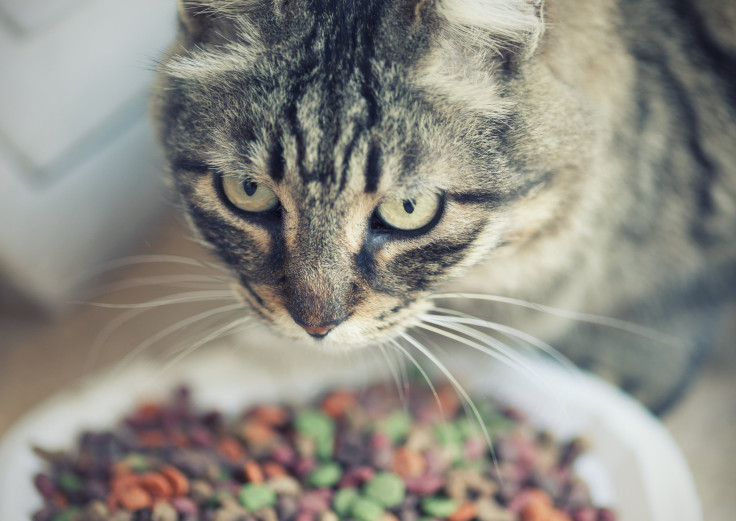Toxoplasma Gondii, Parasite In Cat Feces, Linked To Schizophrenia And Other Mental Illness

The stereoytpe of the crazy cat lady may soon have a scientific explanation.
Cats — especially stray or outdoor ones — may carry a parasite known as Toxoplasma gondii (T. gondii) in their feces. This parasite is able to infect any warm-blooded animal, including humans; the CDC estimates that some 60 million Americans have it. Most people don’t show any symptoms of the infection, but people with a weaker immune system could get sick with toxoplasmosis, which has been linked to miscarriage, fetal developmental disorders, blindness, and flu-like symptoms.
It turns out that in addition to toxoplasmosis, it’s possible that T. gondii is linked to mental illness, including schizophrenia, according to recent research. The study, published in the journal Schizophrenia Research, claims that having a cat during childhood is a risk factor for developing schizophrenia or other mental illnesses like bipolar disorder later on.
The researchers compared two past studies that examined the link between cat ownership and schizophrenia, to mental health data from 1982. Their results, which claim that cat exposure in childhood could play a role in mental illness, supplements another recent study out of the Academic Medical Centre in Amsterdam. The Dutch study found that someone infected with T. gondii was twice as likely to develop schizophrenia as those who did not have the parasite.
Various studies conducted in the past several decades have found links between T. gondii infection and subtle changes in behavior, such as increased levels of dopamine, extroversion in females (and introversion in males, interestingly), as well as less inhibition in risky or scary situations. The infection has been linked to a double increase in the risk of getting into a car accident, lower reaction times, and has even been dubbed the “crazy cat lady syndrome.”
But let’s not freak out and get rid of our cats. The study doesn’t actually prove that the parasite can cause mental illness; it simply hypothesizes that it might, based on the loose link between having a childhood cat and later developing mental illness. The researchers note that more research is needed. “We urge our colleagues to try and replicate these findings to clarify whether childhood cat ownership is truly a risk factor for later schizophrenia,” they write in the abstract.
And scientists still aren’t entirely sure how the parasite works, travels, or even infects humans. One thing is fairly certain: It can only reproduce in cats, and it’s released into the environment from infected cats’ feces, where it can be picked up by grazing animals (pigs, rodents, cows). Humans can come into contact with it through handling cat litter/feces, or eating undercooked or raw meat (which is actually a bigger risk factor than owning a cat).
“I don’t want to cause any panic,” Joanne Webster, a parsitologist at the Imperial College London who has studied the parasite, told The Atlantic. “In the vast majority of people, there will be no ill effects, and those who are affected will mostly demonstrate subtle shifts of behavior. But in a small number of cases, [Toxo infection] may be linked to schizophrenia and other disturbances associated with altered dopaminc levels — for example, obsessive-compulsive disorder, attention-deficit hyperactivity disorder, and mood disorders.”
You can get tested for T. gondii with a simple blood test. But if you’re not already exhibiting symptoms of toxoplasmosis, it’s likely you’re OK and shouldn’t view your cat as a parasite-carrying death sentence. Your cat is still just a cute furball that will continue to steal the Internet’s heart.
Source: Torrey E, Simmons W, Yolken R. Is childhood cat ownership a risk factor for schizophrenia later in life? Schizophrenia Research. 2015.



























